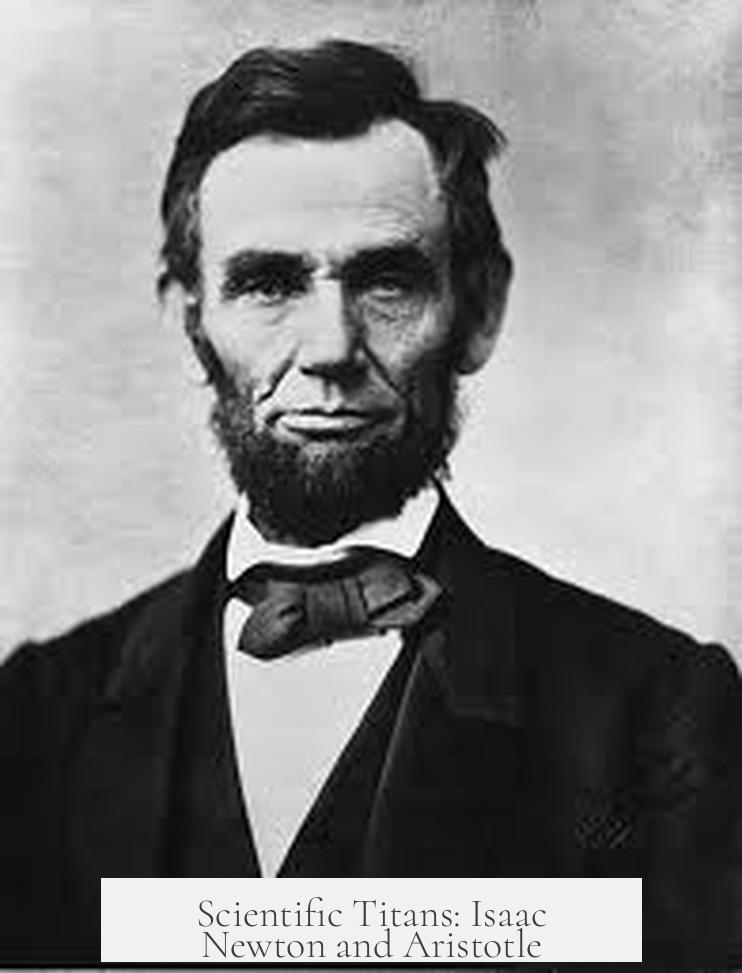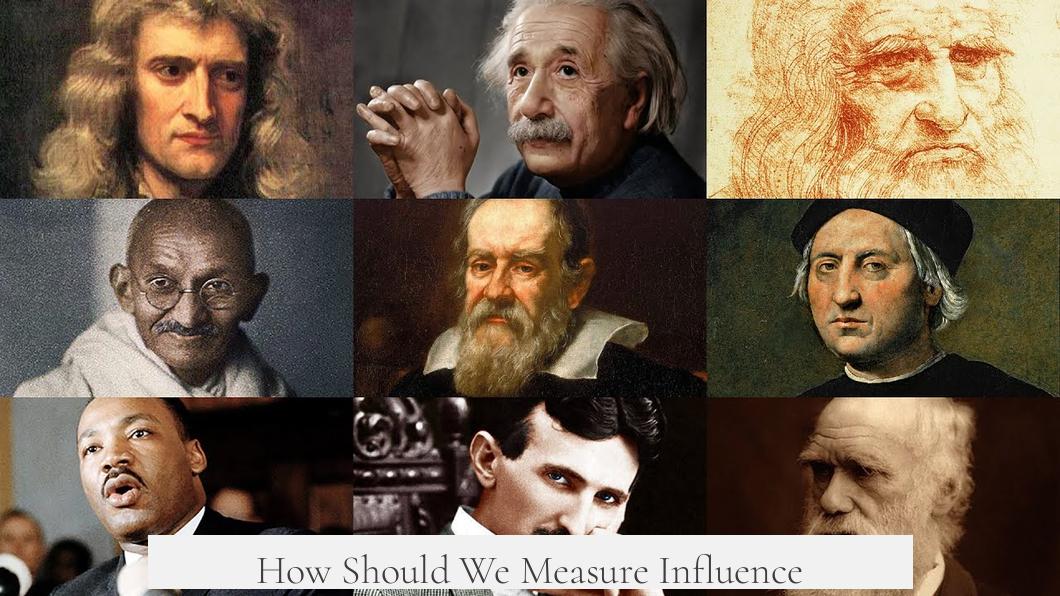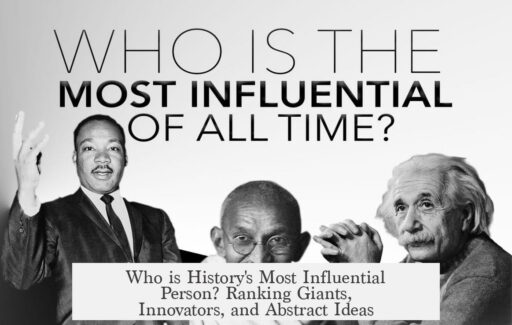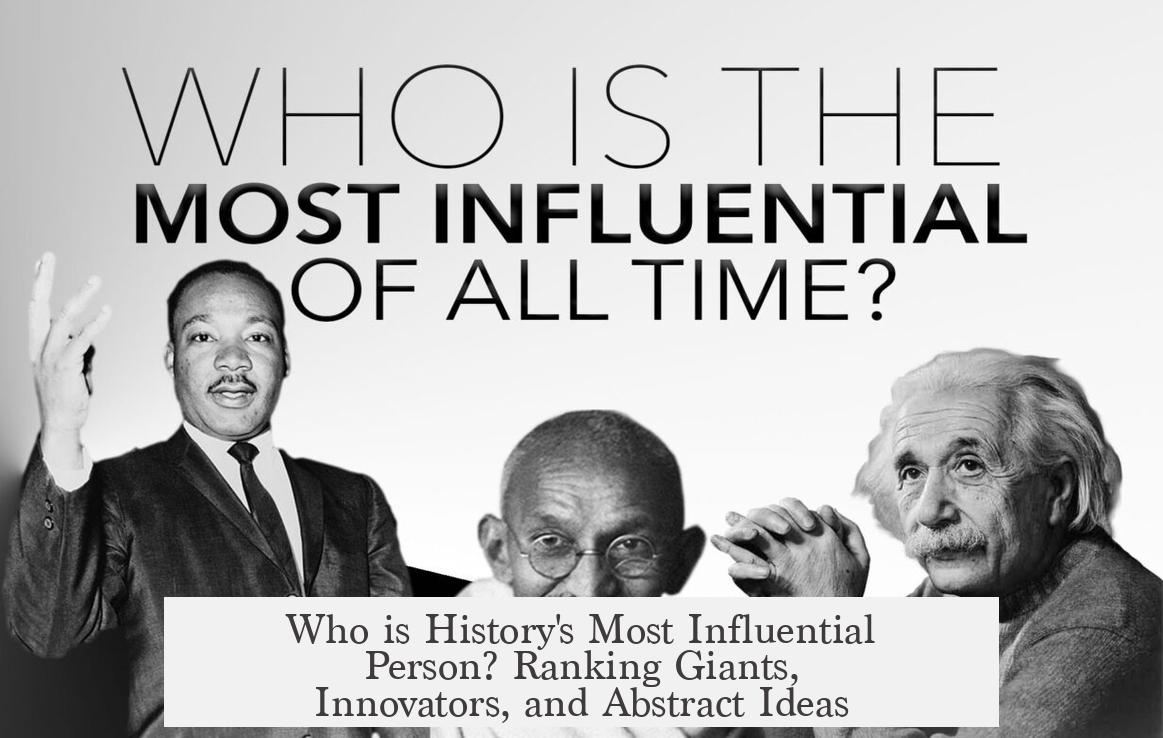The most influential person in history is difficult to pinpoint due to varying contexts and impacts across time. However, figures like Jesus Christ and Muhammad frequently emerge as the most impactful due to their foundational roles in major world religions, shaping billions of lives and cultures over centuries.
Determining the single most influential individual involves challenges. Influence depends on perspective, time period, cultural reach, and individual achievements. Definitions of influence vary, making any ranking subjective. Some focus on religious figures, others highlight scientific pioneers, and some consider inventors whose creations transformed daily life.
Religious founders consistently rank high due to their enduring global influence. Jesus Christ, for example, founded Christianity, which guides the beliefs and practices of billions worldwide. Even non-believers recognize his profound cultural and historical impact. Similarly, Muhammad founded Islam, a religion followed by over a billion people today. Their teachings, communities, and institutions have shaped laws, ethics, art, and politics for centuries.
Beyond Christianity and Islam, figures like Moses are influential as foundational leaders of Judaism, a religion that underpins other major faiths. Buddha and Confucius established philosophies and ethical systems that permeate many Eastern societies. These religious and philosophical leaders initiated profound social and moral frameworks affecting civilizations.
In science and intellectual history, Isaac Newton stands out for revolutionizing physical understanding. Born on December 25, he formulated laws that underpin mechanics and gravity. His work boosted the Industrial Revolution and modern engineering, enabling space exploration and advanced technology. Newton also co-invented calculus, an essential tool for scientific progress. His reflecting telescope remains important today.
Aristotle shaped logic, philosophy, biology, and categorization. His influence defines much of Western thought and scientific classification systems. He created foundational frameworks in language and reasoning that still underpin many disciplines. Aristotle’s contributions endure in education, politics, and scientific inquiry.
Mathematicians like Brahmagupta contributed key concepts such as zero and rules in arithmetic used globally now. His innovations support modern science and technology. Similarly, Louis Pasteur’s germ theory revolutionized medicine by explaining disease causes. His advances in vaccinations saved countless lives and shape public health.
Anonymous inventors like the creator of the wheel also deserve mention. The wheel enabled transportation, trade, and mechanized labor. This invention catalyzed human progress in multiple domains, though the founder’s identity remains unknown.
Inventors of birth control, including Gregory Pincus and John Rock, transformed population dynamics and women’s health. Birth control methods now affect hundreds of millions worldwide, influencing social structures and economies.
Religious influence remains prominent historically. Many argue that religion’s sway on human history exceeds any other factor. Organized agriculture and abstract law also shape societies significantly. Abstract laws, independent of individual power, contribute deeply to governance and social order.
Ultimately, influence is a psychological concept that depends on acknowledgement by others. For influence to manifest, it must be recognized and embraced by individuals or communities. This perspective emphasizes the relational aspect of influence across history.
| Category | Notable Individuals | Key Contributions |
|---|---|---|
| Religious Leaders | Jesus, Muhammad, Moses, Buddha, Confucius | Established major world religions and ethical systems |
| Philosophers & Thinkers | Aristotle | Foundations of logic, philosophy, and scientific classification |
| Scientists & Inventors | Isaac Newton, Louis Pasteur, Brahmagupta | Scientific laws, germ theory, mathematics innovations |
| Anonymous Inventors | Inventor of the wheel | Transformed transportation and mechanization |
| Modern Innovators | Gregory Pincus, John Rock | Birth control methods impacting global demographics |
- Religious founders often hold the largest historical impact due to shaping cultures and morals.
- Scientific innovators like Isaac Newton greatly advanced knowledge and technology.
- Inventors of fundamental tools (wheel) and concepts (zero) helped shape civilization.
- Influence depends on acknowledgement and acceptance by societies.
- Ranking influence remains subjective, blending cultural, temporal, and social factors.
Who Is the Most Influential Person in History? Unpacking the Mystery

Determining the most influential person in history is no walk in the park. Influence wears many hats, and its impact stretches across centuries, cultures, and individual experiences. Whether we talk about religious founders, scientific geniuses, or even anonymous inventors, picking just one name feels like trying to catch lightning in a bottle.
So, who really takes the crown? Let’s dive into some heavyweight contenders and explore why the title of “most influential” is a slippery fish.
The Challenge of Ranking Influence
Right off the bat, ranking influence is tricky. Imagine lining up everyone who changed the world — from kings and conquerors to thinkers and inventors — through thousands of years. The circumstances differ, and influence itself is subjective.
Any list ends up feeling arbitrary. What counts as influence? Changing ideas? Shaping religion? Inventing life-changing tools?
Influence also depends on how many lives a person’s actions ripple through. It’s a psychological game, too. Someone’s influence only exists if others recognize it. Without recognition, influence is just potential, not power.
Religious Giants: Jesus, Muhammad, Buddha, and Moses
If history had a “most influential” hall of fame, religious founders would have front-row seats. Jesus tops many lists — regardless of one’s personal beliefs — as his teachings spawned Christianity, a faith guiding billions. Some argue Paul, who spread Jesus’s message, also deserves a shoutout.
Muhammad stands shoulder to shoulder with Jesus. Islam shapes not just faith but politics, culture, and society for over a billion people globally. Buddha’s enlightenment ignited Buddhism, changing lives and philosophies across Asia and beyond.
Don’t overlook Moses. Judaism, Christianity, and Islam—the world’s largest religions—trace roots back to him. His influence is a classic example of how religion molds civilizations.
One must admit: religious leaders didn’t just change beliefs. They set entire civilizations in motion. Their ideas impact governments, laws, morals, and daily routines.
Scientific Titans: Isaac Newton and Aristotle

Science fans tip their hats to Isaac Newton. Born on Christmas Day, Newton might be history’s ultimate influencer in the physical world. His laws? The blueprint for the industrial revolution and modern physics. Ever look at the moon? Thank Newton’s math for that lunar landing. He birthed calculus and invented the reflecting telescope still in use today.
Then there’s Aristotle, the OG philosopher who shaped how we think. His work on logic, language, and categorization forms the backbone of science and humanities today. We thank him every time we mentally sort animals into mammals and mollusks or debug arguments with rational precision.
The Unsung and the Foundational: Brahmagupta, Pasteur, and the Wheel Maker
History’s spotlight isn’t always fair. Take Brahmagupta, the ancient mathematician who gave us key concepts—like zero—that keep our modern math ticking. Yet, few name him as often as Newton or Aristotle. Go figure.
Louis Pasteur’s germ theory and vaccine development saved countless lives. Without him, infectious diseases might still run rampant unchecked.
Here’s a twist: the single most influential person might be the anonymous inventor of the wheel. Without that ground-breaking tech, no carts, no wagons, no cars—pretty much no civilization as we know it. We’d still probably be lugging stuff on our backs.
The Influence of Abstract Law and Birth Control Innovators
Abstract law—the idea that laws can exist independently of power—changed societies as much as farming. It paved the way for justice systems and modern governance. The thinkers who laid this groundwork deserve recognition for crafting what keeps societies stable.
And what about inventors of birth control? Pioneers like Gregory Pincus and John Rock invented the pill, now used by over 151 million women worldwide. Methods like female sterilization and IUDs affect nearly half a billion users. These inventions revolutionized family planning and women’s autonomy.
How Should We Measure Influence?

After considering all these figures, the question lingers: How do we measure influence? History is complex. Some people influence ideas and culture. Others affect technology and daily life. Some shift the course of entire continents.
Maybe the real answer is there is no single “most influential person.” Influence is layered, cultural, and personal.
Still, evaluating life-shaping impact, Jesus arguably holds the top spot. His influence touches billions over millennia, shaping not only religion but ethics, art, and law.
Newton’s impact is more tangible—technology, science, the physical universe. The anonymous wheel inventor’s contribution is foundational to human progress.
So, what’s your take? Is influence about the number of followers, longevity of ideas, or the depth of change? Who would you add to the list? History’s puzzle is far from solved.
Final Thought
So next time you think of the “most influential person in history,” remember influence is a mosaic, not a single tile. Names like Jesus, Muhammad, Newton, Aristotle, and countless unsung heroes have shaped our world.
From ancient scriptures to modern science, from inventions large and small, influence weaves through every facet of human experience.
In the end, maybe it’s less about crowning one individual and more about appreciating the giants on whose shoulders we all stand.




